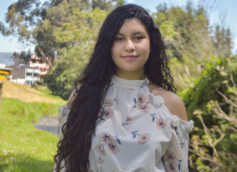Rivers in residential areas, seas, and oceans have been affected by inadequate solid waste management and disposal. As result, huge islands of plastic waste have been formed in the oceans. To counteract and reduce plastics volume in water bodies, we developed an artisanal system for collecting floating waste. We called this system Ecobardas, for our case of study in the Capelo river – Ecuador. The second phase of this project involved the design and manufacture of eco-blocks with triturated recycled waste material (plastic). Eco-blocks are cheap and can be used for any type of buildings. Their lower cost will be beneficial to people of scarce resources or who are in vulnerable situation.
This is how I came up with the idea for this project:The idea was born one day walking near a river that crosses my city, I realized that it had a lot of garbage, I began to investigate how I could clean the polluted rivers, which inspired me to create ecobardas and ecoblocks. This project that I titled as ''ConCiencia Verde''.

Documentation
ConCiencia Verde The pollution of rivers in residential areas, seas, and oceans, has been affected by the misuse of solid residues, causing islands of plastics in the oceans. To counteract and reduce the amount of plastics in the hydric affluents we developed the assemble and implementation of Ecobardas in the Capelo river. This is an artisanal system for the capture of floating waste in the water. The second phase of this project consists in eco-blocks design and manufacture with triturated recycled waste material. Eco-blocks can be used for any type of constructions and will be mainly directed to people of scarce resources or who are in vulnerability situations because of their low price.

